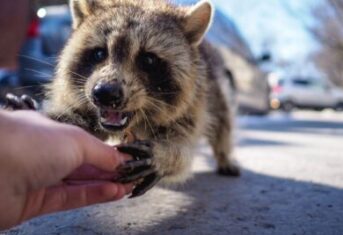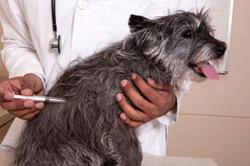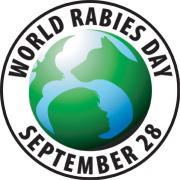Cautionary Tales of Rabies Encounters in New York City

Cautionary Tales of Rabies Encounters in New York City
World Rabies Day is September 28th. Canine rabies was a major topic for veterinarians in 2021 due to a canine travel ban issued by the Centers for Disease Control (CDC) after they discovered rabies in dogs imported with fraudulent rabies certificates. The restrictions have been somewhat loosened, but they still require scrolling through several pages on the CDC’s website to understand how to travel with a dog.
To recognize World Rabies Day 2022, I thought I would share stories told to me by colleagues and pet owners about their and their pet’s exposure to potentially rabid animals. To conclude, I will focus on what can be done to protect your pets against this fatal disease.
Bats, not Santa, Came Down the Chimney
Most cats in New York City are indoor cats for obvious safety reasons. Likewise, many suburban cat owners keep their kitties inside to protect against threats from cars, poisons, dogs, and local wildlife. Keeping cats indoors also helps protect them against rabies – but not completely. Twice, I have heard a story about an indoor cat and a bat. In both stories, the bat somehow gets into the house and comes in contact with the family’s cat. If vaccinated, the cat gets a booster and observation. If unvaccinated, the cat may be quarantined for months. In both cases, the fireplace chimney was believed to be the entry point for the bats because they were found in a room with a fireplace.
Raccoon Rabies Threat
While bat rabies has been reported in every state except rabies-free Hawaii, raccoons are the primary rabies reservoir here on the East Coast. Raccoons are common in New York City’s Central Park, and we have raccoons in all five boroughs. One of my canine patients was walking on a leash in Central Park when, out of the bushes, came a raccoon who decided to pick a fight with the dog. This is highly unusual behavior and a rabies warning sign. The dog’s owner shooed the raccoon away then came right to the Schwarzman Animal Medical Center. Because this dog was up to date on vaccines, we only needed to revaccinate her. Had she not been vaccinated, she would have been quarantined.
Protect Your Pets
The rabies vaccine is very effective at preventing rabies. No rabid dogs have been found in New York City in over 60 years, which coincides with compulsory rabies vaccinations in dogs. Vaccination is the most important tool veterinarians have to prevent rabies. (Read more about vaccination in cats and dogs in our Pet Health Library.)
Preventing your pets from exposure to potentially rabid wildlife is the second step. Bat-proof your home. Don’t attract raccoons to your property by having unsecured trash cans or feeding them just because they are really cute. Why unnecessarily test the efficacy of the rabies vaccine?
The CDC website has a series of fascinating rabies stories posted on their website. My favorite: “Is that a Bat in Your Salad?”!!!!

































